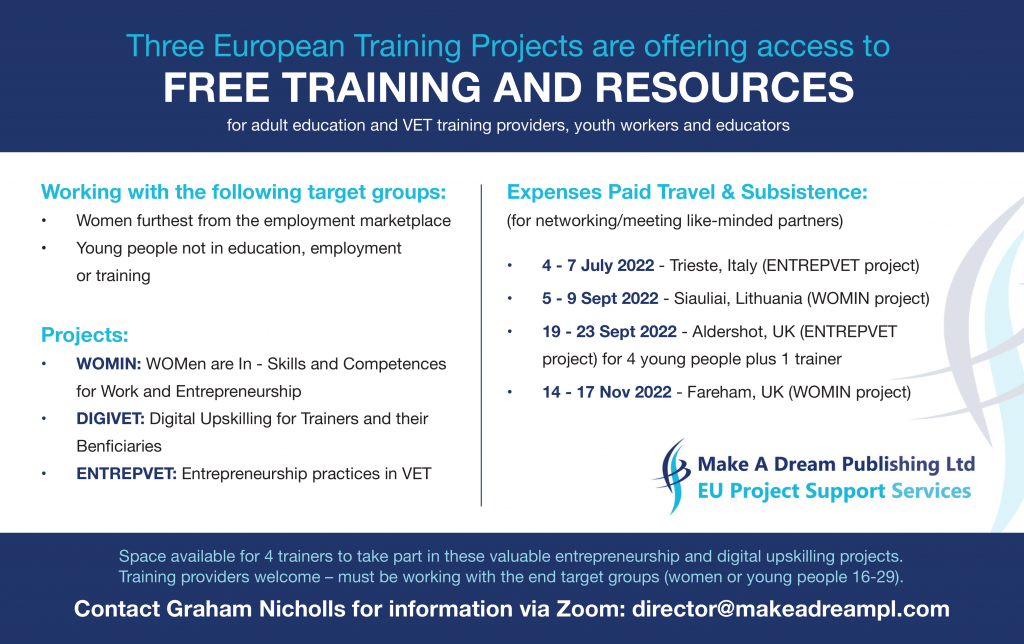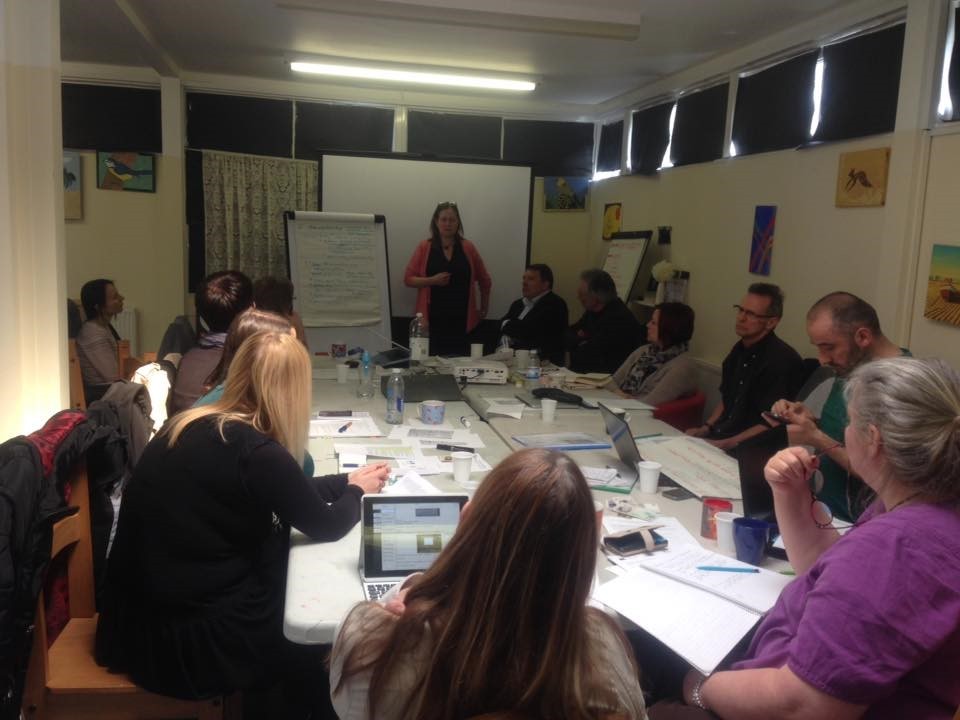At Make A Dream Publishing Ltd., while investigating what underpins the successful creation of a social enterprise, we came across the 224-page e-book Social Innovator Series: Ways to Design, Develop and Grow Social Innovation.
This inspired us to create a workshop and a subsequent webinar based on the steps required to create a social enterprise.
Our director Graham Nicholls – who has been involved in European Funded projects since 2004, and who has raised over €3,000,000 for organisations across Europe – first presented the following model to a Social Firms Europe CEFEC international conference held in Corfu in September 2013.
Entitled Social Entrepreneurship Today: Grasping the Challenges and the Opportunities, the Social Innovator series identified 6 key stages in social innovation:
- Prompts: Frame the challenges differently to tackle the root cause and go beyond the symptoms. Mobilise belief that a course of action is possible, and that people are best suited to solve their own problems.
- Proposals And Solutions: Share knowledge and promote ideas from a variety of sources. Utilise networking (particularly with sources from other cultures and countries) to gain valuable new input.
- Prototypes And Pilot Projects: Assess the available finances and resources. Seek feedback and evaluations.
- Sustaining: Develop a clear idea of how the project will generate income to cover costs; will a public or private body pay for what is on offer, for example?
- Scaling And Diffusion: Analyse how to adapt to different areas, and how to share the innovations developed by the project so they’re not kept private.
- Systemic Change: How to spread the innovations arising from the project which impact and radically change the fundamental systems on which we depend (e.g. healthcare, housing, learning, training). Systemic innovation is different from innovation in products and services.
Here is a case study of how this process works at each stage:
1. Prompts
During a workshop, a refugee in Sweden asked if it was possible to create a ‘doing house’ – i.e. a place where other refugees and migrants could come together to share their skills and provide a service to the local community.
We followed the Stage 1 advice to frame the question differently.
So rather than simply providing an environment where this could take place, supervised locally, we took the next step of asking, ‘What would it need for people to create their own project in the community – what training would they require?’
This reflected the idea that people are best placed to solve their own challenges.
2. Proposals And Solutions
We approached several organisations in our network whose focus was on community development and training.
We discussed the ‘prompt’ within our regional network and discovered there was a gap in recognised Vocational Education and Training qualifications in the UK.
Prospective partners from Sweden, Romania, and Slovenia then discovered the same result in their own countries.
Trainers from these organisations were familiar with the development of new training programmes, and having this expertise on board was essential in creating the relevant training for our strategic partnership.
We also invited accrediting bodies to give their input on how they would want the training programme to be delivered so that it could achieve national accreditation in their own country.
3. Prototypes And Pilot Projects
Partners discussed how to create a pilot training programme, and put forward ideas for training modules.
We narrowed the module ideas down to 5 that were core to any community development work, and identified 5 further key areas that were of specific use to each partner and relevant to their core activities.
4. Sustaining
We created a pilot scheme and applied for funding from the EU.
The funding was approved, and we fully explored the content of the training and assessment criteria, and the methodology that would satisfy the accrediting bodies in each partner country.
We continued working with those bodies to have the training modules accredited in each partner country at a national level, all mapped to the European Qualification Framework (EQF) Level 3.
5. Scaling And Diffusion
The aim of achieving accreditation was that the training programme would be available not only to the strategic partnership, but so that other training organisations in each partner country could also draw down the relevant resources and learning outcomes etc., and be able to deliver the accredited training locally.
We worked with stakeholder networks to see how the course content could be varied according to local needs, while still retaining the same learning outcomes mapped to EQF Level 3 across the partnership.
6. Systemic Change
The project was accredited in the UK by OCN London, in Sweden by the Folk High School, in Romania by the Training House of Teachers, and in Slovenia by the Social Chamber of Slovenia.
Following accreditation, the training was adapted to include a wider target group. For example, in the UK, OCN London adapted the project to create a 3-tier qualification framework.
Then, all our Community Champion Training Programme (CCTP) partners embedded the CCTP modules that we created into their training curriculum – this represents systemic change.
Our partners also trained 112 Community Champions against a target of 72, a total of 145 people attended the dissemination events against a target of 120, and the project was presented to 38 Rural Community Charities at the ACRE CEO Conference.
Recent Projects And
Continued Progress
Make A Dream Publishing Limited (MADPL) continues to develop numerous successfully funded projects and new entrepreneurial initiatives in the UK and throughout Europe.
Our most recent projects include: WOMIN – Women are In: Skills and Competencies for Work and Entrepreneurship, DIGIVET – Digital Upskilling for Trainers and Women Beneficiaries, and ENTREPVET – Entrepreneurship Practices in VET.
Article by Graham Nicholls of Make A Dream Publishing Limited



